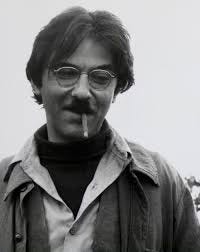Gustaf Sobin (1935-2005) was an American poet who produced a substantial amount of poetry but is totally under the radar. This is partly because he lived in France from 1962 until his death, and partly because his poems have never been in fashion (not when he wrote them, and at no point since).
When Sobin was in his twenties, he became so deeply influenced by the French poet René Char that he moved to France and bought an abandoned silk cocoonery in a medieval village in the Vaucluse to use as his home base. From his adopted country, Sobin wrote eight books of poetry, four novels, three books of essays, and two books of translations.

He had a breakthrough hit with the only-slightly-less-obscure novel, The Fly-Truffler, which uses as one of its main narrative threads the practice of stalking the flies that lay their eggs directly over the truffles. (There is more to it than that, but not a ton more.)
Sobin’s poems are the most conceptual, French-style poems written in English. They fit no school and really have no precedents or antecedents. He had no teachers other than Char (whom he did meet and receive guidance from) and he had no students.
Sobin’s own statements about his poetry illuminate his intentions:
My entire work might be seen as a transcript of sorts, celebrating margins.
Keep reading with a 7-day free trial
Subscribe to The Sharpener to keep reading this post and get 7 days of free access to the full post archives.



